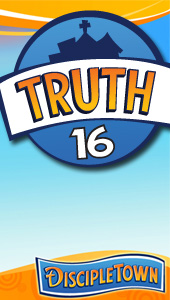Thoughts on The Hunger Games
Membership Level› Guest
Author/Source: Glen Woods
Topic: Movie Review
Some detailed thoughts and extrapolations about the film The Hunger Games... and how it relates to kids
This review of The Hunger Games contains plot spoilers. Fair warning.
"May the odds be ever in your favor..." And so begins the 74th annual Hunger Games. Set in futuristic post-apocalyptic North America, The Hunger Games has a familiar concoction of plot points (both fiction and non-fiction) ranging from the imaginative command-control-televised entertainment aspects of The Truman Show to the very real-life brutal end game of the ancient Roman Coliseum, and also the modern Lord's Resistance Army in its successful efforts to transform children into vicious killers who do the bidding of their masters. It makes me ill to think about and it hurt my heart to watch. During the film I cried for innocence lost and for a culture which has thoroughly lost its way. Not just the culture portrayed in the film, but ours in the West. And not necessarily for the reasons you might expect.
The film begins with the Reaping, an annual event in which tributes, a boy and a girl ages 12-18, are selected by random drawing from each of the nation's twelve districts. It hearkens to the foreboding atmosphere created by Shirley Jackson in her short story, "The Lottery." However, in The Hunger Games the selected participants are allowed to fight back, rather than simply submitting to being stoned as in "The Lottery." But rather than primarily fight unsympathetic monsters, as in The Lord of the Rings or Harry Potter franchises, they are made to fight each other, child on child; with brutal, realistic hand-to-hand combat such as that found in the Bourne trilogy. Within the first minute of the combat's start, eight children are dead. Throats slit. Bodies hacked lifeless. Blood flying in the carnage. Murdered. To the unheard cheering of gambling throngs in the wealthy metropolis as they exchanged wagers and clucked their tongues over the glorious bloodshed. I averted my eyes in horror. I wept at my own loss of innocence which over the years has slowly depleted my sensitivity to such violence.
The Games were created as a way for the state to remind the districts of the consequences of rising up in violent protest. The tributes are sacrificial offerings to the state. Rather than subjugate the people strictly through fear, they offer a thread of hope in the form of lottery odds. Indeed, "may the odds be ever in your favor" is the closest thing to prayerful hope that they experience. They hope against hope that they or their loved ones are not selected to be tributes, but if they are chosen, they resolve to acquit themselves well as a matter of personal survival. Many affluent children are trained as warriors from infancy in preparation for their possible selection. In the process, the innocence of childhood is murdered within the entire culture to the cheers of the crowds. It's the Roman Coliseum all over again. If Nero were alive, he would be happy. Rated PG-13 for intense violence and disturbing images and occasional cursing, the film tests the upper boundaries of that rating. This is not a movie for children, or sensitive youth or adults.
If this were a poorly made film, there would not be much else to write about it. But that is not the case. From a cinematic and narrative perspective, it is quite well done. I should add that I have never read the book from which this film took its inspiration. This viewing was my first introduction to the story. That said, the cinematography was appealing, portraying a beautiful blend of the gritty rustic realism of the masses that live in poverty contrasted against the opulent wealth of those in power and the grotesque pampering they have come to enjoy while feeding on the displays of carnage.
From a narrative standpoint, the large number of secondary characters are primarily one dimensional (often in the form of simplistic conventional clichés, alternating between good and evil, sort of like Star Wars extras), but the main characters are mostly sympathetic, even some of the evil ones who are selected as tributes for the 74th Hunger Games. They have prepared for these games their entire lives. Not so, sixteen-year-old Katniss Everdeen, who volunteers in her younger sister's place to enter the games, and must depend on hunting instincts in addition to the mentorship of drunken former victor Haymitch Abernathy. She is the only person in the history of the games to volunteer, but the odds clearly are not in her favor, given the impossible choices she must make between ultimate survival and genuine love.
The Hunger Games is a product of the prevailing blend of postmodern and modern mindsets found in so much of the West, inching it closer to that worldview's logical conclusion of despair. Indeed the film portrays a deconstructionism which perverts hope into an abandonment of foundational principles for the sake of personal survival in a culture gone mad in an orgy of violence and self-promotion. It does so in the very modernistic guise of consumerism, voyeurism, reality gaming, and of course, with the help of the old-as-antiquity past-time of gambling. We do not know how close Katniss comes to complete despair in this installment of The Hunger Games universe, but we can be reasonably sure that her near suicide at the end of the games and her survivalist participation in the celebratory talk-shows and waving to cheering throngs afterward surely do not bode well for her. Yet, she gives us reason to hold on to hope, given her repeated acts of compassion for fellow weaker participants who struggled to survive.
Do I recommend The Hunger Games? No. Not if you secretly enjoy the notion of children killing children, or are especially sensitive to displays of violence, particularly among young people. Why would I want to sponsor the perpetuation of such a mindset of destruction and despair?
But then again, I do recommend it to people who wish to witness an eloquent native (that is, native to the prevailing complex contemporary Western worldview) story which portrays the consequences of the meaninglessness of life when all that is at stake is personal survival with no mention of our part in a larger narrative. In this mindset, it is enjoy the game or be gamed; gamble or be gambled; entertain the adoring fans who are eagerly calculating your chances for survival, or earn their disfavor with no chance they will sponsor you with gifts of medicine or food; kill or be killed. In other words, live in the moment for it is fleeting and will likely soon be snuffed out along with your life. Despair. A charade of hope thinly veiling no hope at all.
In one sense, I am glad for this movie because of the stark reality it exposes in our hearts and culture. Some of my friends are very upset about the film and its story. I am highly sympathetic to their sensitivity to the loss of innocence in our children. If only we would get this upset about child trafficking for the sex trade or conscription of children to wage war, as with the Lord's Resistance Army. Then we might be able to engage in practical and constructive action rather than resort yet again to impotent tirades against another supposed salvo in the tiresome, unproductive culture wars between conservative evangelicals and the rest of the world. The Hunger Games is far better than most detractors allow, and far more disturbing than its uncritical proponents will admit. Parents and pastors, be advised. The law of diminishing returns suggests that more of the same is on tap for the culture, only more disturbing and more violent. Question is, who will guide your children through the choices they must navigate in the culture? The real-life equivalent of morally ambiguous Haymitch Abernathy, or you?











